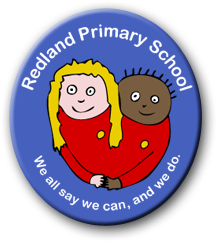- Home
- /
- Learning
- /
- Curriculum
- /
- History and Geography
History and Geography
History at Redland is taught as part of topic, which is planned on a 2-year rolling cycle. Specific historical concepts flow through each historical topic studied. The concepts that thread through our topics are: Empire, Invasion/Conflict, Settlement and Everyday Life. Through our topics we ensure children gain a coherent knowledge and understanding of Britain’s past and that of the wider world. Our topics inspire pupils’ curiosity to know more about the past. Pupils make progress in history by developing their knowledge of the past (Substantive knowledge).
How historians investigate the past and how they construct claims, arguments and accounts is often described as ‘Disciplinary knowledge’. At Redland, 8 disciplinary skills are taught through our chosen historical topics. These are: Chronological understanding and context; Continuity and change; Connections, contrasts and trends over time; Constructing knowledge from a range of sources; Providing informed responses using a variety of sources; Responding to contradictory sources of information; Engaging with historical enquiry.
The history topics covered at Redland are as follow:
Wrens/Owls: Old Toys, Florence Nightingale, Neil Armstrong, Louis Braille and Victorian sea sides
Robins and Nightingales: Transport, Great Fire of London, Explorers (Columbus, Armstrong)
Puffins/Nightingales: Anglo Saxons, World War II, Egyptians
Buzzards/Hawks: Romans, Vikings, Stone Age to Bronze Age
Kingfishers/Falcons: Rebuilding Britain (posy WWII, Ancient Greece, Kingdom of Benin.
The aims for key stage 1 and key stage 2 children in history are:
– to know and understand the history of these islands as a coherent chronological narrative, from the earliest times to the present day: how people’s lives have shaped this nation and how Britain has influenced and been influenced by the wider world.
– to know and understand significant aspects of the history of the wider world: the nature of ancient civilisations; the expansion and dissolution of empires, characteristic features of past non-European societies; achievements and follies of mankind.
– gain and display a historically grounded understanding of abstract terms such as ’empire’, ‘civilisation’, ‘parliament’, and ‘peasantry’.
-understand historical concepts such as continuity and change, cause and consequence, similarity, difference and significance, and use them to make comparisons, draw contrasts, analyse trends, frame historically valid questions and create their own structured accounts, including written narratives and analyses.
– understand the methods of historical enquiry, including how evidence is used rigorously to make historical claims, and discern how and why contrasting arguments and interpretations of the past have been constructed.
– gain historical perspective by placing their growing knowledge into different contexts, understanding the connections between local, regional, national and international history, between cultural, economic, military, political, religious and social history and between short and long term timescales.
At Redland, we use visitors, trips and resources to further engage children and encourage a lifelong love of history.
Geography
Geography is concerned with the study of people and places from around the world. The nature of the subject is to develop knowledge and understanding of the human and physical processes. The geography learning at Redland encourage children to develop geographical curiosity about Chippenham and the wider world. Geography at Redland is taught as part of topic, which is planned on a 2-year cycle. There are key areas taught in each year group, with skills being built on as the children move through the school. The 4 main areas of Geography are: locational area, place knowledge, human and physical geography, and Geographical skills and fieldwork. In Geography we have ‘golden threads’ running through the geography learning across the school. The four golden threads are our planet, the impacts of humans, my place in the world and cultures and trade. Through the threads children will develop an understanding of how human, physical and environmental features of our world affect one another.
The Geography topics covered at Redland over the 2-year cycle are:
Wrens/Owls: Geography is covered in many topics throughout the year. Some examples of where Geography is covered are in Commotion in the Ocean; Our world and beyond; At the seaside; The great outdoors
Robins/Starlings: Our school; China; The UK
Puffins/Nightingales: Rainforests; Rivers; Bristol
Buzzards/Hawks: Where in the world; Our neighbours in Europe
Kingfishers/Falcons: Extreme Earth (Climate, Tsunami, flooding Antarctic circle and Drought); South America; Natural resources
- Redland Geography Journey

Redland Primary School, Brook Street, Chippenham, SN14 0JE Telephone: 01249 651623 Email: admin@redland.wilts.sch.uk
© 2025 Redland Primary School | Designed & Hosted by Oakford
